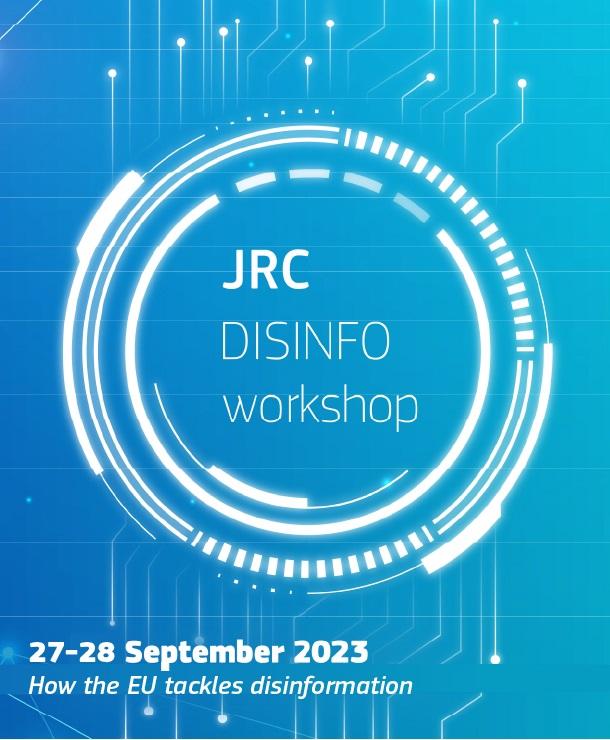
Last week the Joint Research Centre organised the fourth edition of its Disinfo Workshop in Brussels. The two-day event saw speakers and attendees from across the EU institutions, civil society organisations and academia get together to discuss the latest disinformation research, policy developments, and share insights into how we can address emerging risks.
Among the speakers was JRC Deputy Head of Unit, Yves Punie, contributing to a session on EU policies against mis/disinformation. His presentation focused on the adoption of the Digital Services Act (DSA), the role the European Centre for Algorithmic Transparency (ECAT) will play in its implementation, and what this might mean for the fight against mis- and disinformation.
Disinformation and the DSA
The DSA has introduced a comprehensive new set of rules and obligations for online platforms and search engines with the aim of creating a safer and more trusted online environment. Among the requirements is the ability for users to flag illegal content and contest moderation decisions, as well as the need for providers to be more transparent about aspects such as advertising and content moderation.
Additional requirements are outlined for designated Very Large Online Platforms and Search Engines (VLOPs and VLSEs). The first set of designations consists of 17 VLOPs and two VLSEs, and they face greater responsibilities in areas including transparency and risk management.
These requirements are implemented with the aim of addressing systemic risks, as set out in Article 34 of the Act. Among those systemic risks is the intentional manipulation of the service with actual or foreseeable negative effects on the protection of public health, minors, civic discourse or electoral processes and public security. Recital 84 specifically sets out that providers need to pay particular attention to how their services are used to disseminate or amplify misleading or deceptive content, including disinformation.
This priority in the DSA is supported in the European Democracy Action Plan and builds on experience from the Code of Practice on Disinformation, signed by, amongst others, four of the companies behind designated VLOPs and VLSEs (Google, Meta, Microsoft and TikTok). The day before this year’s Disinfo Workshop, these companies published the first reports under the new strengthened Code, and colleagues from DG CONNECT presented on some of the fascinating insights from the reports – if you are interested in reading the reports, you can find them in the Transparency Centre.
The role of ECAT
ECAT will provide scientific and technical contributions and support for the Commission’s supervisory and enforcement role when it comes to the DSA obligations that apply to VLOPs and VLSEs. Our team is equipped to support platform assessments and inspections, including potential investigations into to mitigating systemic risks of disinformation. We also conduct research on topics such as the impact of social media on mental health and well-being, and provide analysis and foresight that can help policymakers adopt the right interventions for a safer and more trusted online environment.
A community of researchers and practitioners will be essential to ensure a collective European approach to algorithmic transparency and enable the effective planning and dissemination of research conducted through the data access rights granted by the DSA. ECAT prioritises the facilitation of such a community, and the team looks forward to collaborating with experts who took part in the workshop, alongside many other brilliant research, civil society and industry groups spread across Europe.
The JRC is planning to host the next Disinfo Workshop in September 2024 in either Brussels or Ispra.
Details
- Publication date
- 3 October 2023
- Author
- Joint Research Centre
